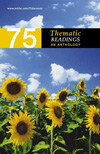
Mike Rose |  |
Mike RoseMike Rose, "I Just Wanna Be Average" Mike Rose (1945- ) was born in Altoona, Pennsylvania and raised in South
Central Los Angeles. Rose was educated at Loyola University, the University
of Southern California, and the University of California, Los Angeles
where he earned a Ph.D. in 1981. He is currently a professor at UCLA,
and has also taught at the grade school and high school levels. His books
include Lives on the Boundary: The Struggles and Achievements of America's
Underprepared (1989) and Possible Lives: The Promise of Public
Education in America (1995). Rose is a strong advocate along the lines
that children are our future, stating "America is being created"
in classrooms around the country. He came to that conclusion, for him
mainly a positive one, by observing teaching, learning, and other teacher/student
interactions in a number of different settings in public schools across
the country. Rose also contributes to journals such as Anthropology
and Education Quarterly, and College Composition and Communication.
"I Just Wanna Be Average," which takes a
close look at vocational school and education tracks, is an excerpt from
Lives on the Boundary. | QUESTIONS FOR DISCUSSION | CONTENT - How did Rose do on his grammar tests in grade school? How about
math tests?
- What does the author remember about St. Regina's? What doesn't
he remember?
- Who is Lou Minton? How does he figure in the author's life?
- Describe the author's interaction with his chemistry set.
- What did the author find valuable about reading? What kinds of
books first drew him to reading?
- Describe the neighborhood the author grew up in. What examples
of contrasting neighborhoods can you find in your reading?
- What, according to Rose, are the "true job skills"? Against
what does he contrast these skills?
STRATEGY AND STYLE - Discuss the effect of the use of the word wanna in the title.
How does the title's meaning change with the use of the more standard
usage want to?
- "I Just Wanna Be Average" is a narration about a part
of one specific man's life, but it has widespread relevance. What are
some of the ways Rose makes this more than just the story of a single
individual? Where in the essay did you go to support your answer?
- Why do you think the author repeatedly abbreviates Vocational Education
into Voc. Ed? What would change about the essay if he used the
longer form?
- How would you describe the relationship Rose had with his parents?
How can you tell? What specific references to the text support your
answer? Where are they located in the essay?
- In the first sentence of paragraph fourteen the author uses the
words endocrine and transmogrifies right alongside hoodoo
and gawky. How can you relate this mixture of academic and slang
usages to the tale the author is telling about himself?
| ENGAGING THE TEXT | - Do you consider yourself average? In what regard? In what are you
above average? In what might you be below average? How can you relate
these ideas to your reading?
- What's your relationship with reading in general? Has this relationship
changed over time? Explain. What do you like to read? What do you dislike?
Did any of these thoughts cross your mind during your reading of this
piece?
| SUGGESTIONS FOR SUSTAINED WRITING | - In paragraph twenty-six Rose writes, "Students will float
to the mark you set." Explain what he means by that by writing
an essay either supporting or refuting his statement. Use specifics
from the text and your own ideas about the nature of teaching and learning.
- Study the character sketches the author writes in paragraphs twenty-nine,
thirty, and thirty-one. Choose three or four of your favorite classmates
over the years and write similar sketches about them.
| FOR FURTHER RESEARCH | Pick one vocational school in your area and research its mission statement,
teaching methodology, and courses offered. Interview a teacher or two
if you can. Write a report about the program, linking it to Rose's observations
about vocational education whenever you can. | WEB CONNECTION | This page
has some information about a PBS show that Rose hosted called English
Composition: Writing for an Audience. Can you tell if your library
has the series from the computer you're using now? If it doesn't what
would be a good way to find it? | LINKS | Biographical This is Rose's page
at U.C.L.A., where he's been a professor for a number of years. There,
you'll find a photo, a statement about his academic interests, and a
selected bibliography. Here's a brief biography
with a photo of Rose and a couple of related links. The organizers of a talk Rose gave for the National Council of
Teachers of English prepared this biographical note
for the occasion. How does this biography differ from the first one
above? Which would you be more likely to use in a paper about Rose?
Why?
Bibliographical Click here to read an excerpt
from Possible Lives: The Promise of Public Education in America. Here are three abstracts
of reports Rose has written about remediation in reading and writing.
What can you tell about the reports from the abstracts? What kinds of
questions would make consulting the reports themselves necessary? For some more of Rose's work in etext, click here to read six excerpts
from his book Lives on the Boundary.
Cultural Interested in finding out more about writing programs on the Web?
Well, this hyperlinked page
lists hundreds of them, and you're sure to find a good tip or two if
you visit a couple. Mike Rose often writes about school reform. Does that sound like
a topic you would like to research? This directory
from Google.com is sure to give you lots of good ideas and way to narrow
your approach.
|
|
|
|